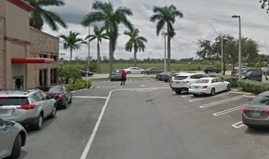Hip Trochanteric Bursitis
One of the most common causes of hip pain seen by orthopedic surgeons is trochanteric bursitis. There are many causes of trochanteric bursitis - some of which may heal on their own, and others that can cause persistent problems and may require surgical fixation.
Patients generally present with pain over the side of the “hip bone”. The pain can be sharp, dull, aching, or burning in nature. Patients often report pain when sleeping on the hip as well as with walking, stairs or getting up from a seated position.
True bursitis of the hip is an inflammation of the trochanteric bursa. However, the exact cause lateral hip pain is lengthy and include: 1) calcific tendonitis, 2) gluteus tendonitis, 3) gluteus medius or minumus tendon tears, 4) iliotibial band snapping hip syndrome, 5) heterotopic bone formation, 6) trochanteric fractures, 7) external rotator tendonitis.
difficult to determine on first presentation. The diagnosis is made with a careful clinical examination by your orthopedic surgeon. Radiographs (or x-rays) are helpful in ruling out other possible causes of hip pain. You may be recommended to undergo an MRI scan of the hip as well.
Treatments usually start with anti-inflammatory medications like ibuprofen or naprosyn. Therapy works well to improve certain conditions of the hip. Your doctor may recommend an injection of pain medication such as cortisone and/or lidocaine in the hip. This may be performed with ultrasound guidance. This is often done as a diagnostic test to rule out other causes of “hip pain” such as lower back pain from a nerve impingement. It is also very therapeutic in relieving the inflammation, and thereby, pain of the lateral hip region.
Surgery may be recommended for those patients who have tried the above non-surgical treatments and who still have persistent symptoms. The majority of surgeries are outpatient and can be performed using an arthroscope, or minimally invasive camera procedure. In some cases, an open procedure must be performed to successfully treat the condition. Time for full recovery is multi-factorial and depends on the etiology of your hip pain as well as the chronicity of the pain. Diligent physical therapy is paramount for a successful outcome.













